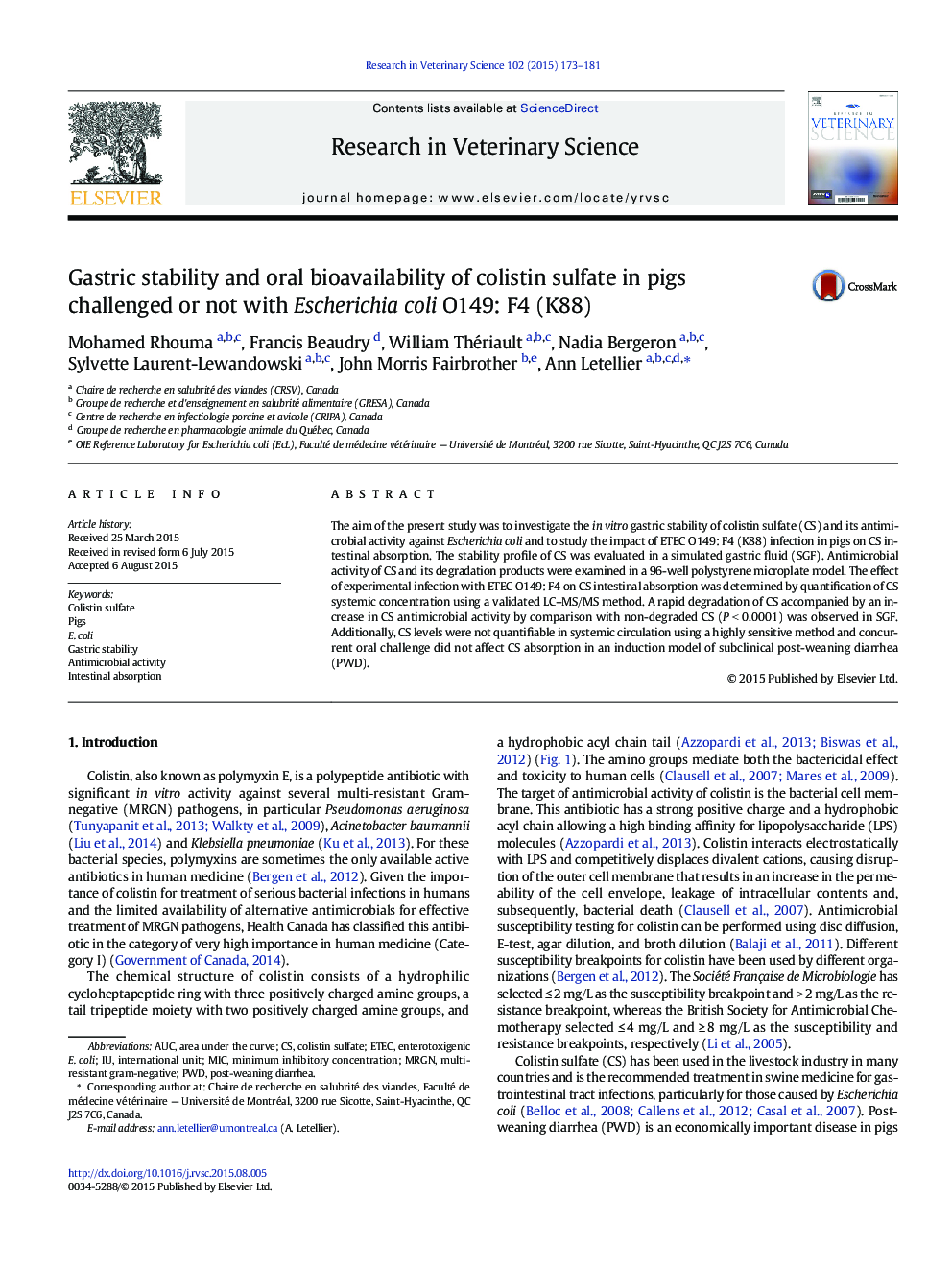| Article ID | Journal | Published Year | Pages | File Type |
|---|---|---|---|---|
| 5794567 | Research in Veterinary Science | 2015 | 9 Pages |
â¢We determine the in vitro gastric stability of colistin sulfate (CS).â¢We determine the impact of CS gastric transit on antimicrobial activity.â¢CS gastric transit is characterized by the formation of degradation products.â¢CS degradation products have a greater antimicrobial activity compared with CS.â¢Oral challenge of pigs by ETEC O149: F4 did not increase CS intestinal absorption.
The aim of the present study was to investigate the in vitro gastric stability of colistin sulfate (CS) and its antimicrobial activity against Escherichia coli and to study the impact of ETEC O149: F4 (K88) infection in pigs on CS intestinal absorption. The stability profile of CS was evaluated in a simulated gastric fluid (SGF). Antimicrobial activity of CS and its degradation products were examined in a 96-well polystyrene microplate model. The effect of experimental infection with ETEC O149: F4 on CS intestinal absorption was determined by quantification of CS systemic concentration using a validated LC-MS/MS method. A rapid degradation of CS accompanied by an increase in CS antimicrobial activity by comparison with non-degraded CS (PÂ <Â 0.0001) was observed in SGF. Additionally, CS levels were not quantifiable in systemic circulation using a highly sensitive method and concurrent oral challenge did not affect CS absorption in an induction model of subclinical post-weaning diarrhea (PWD).
